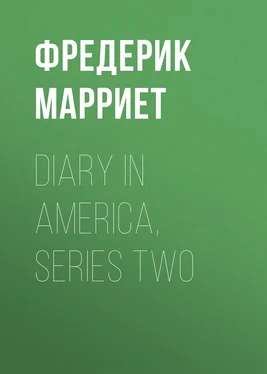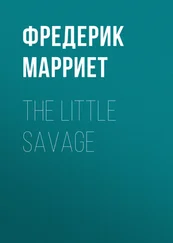Фредерик Марриет - Diary in America, Series Two
Здесь есть возможность читать онлайн «Фредерик Марриет - Diary in America, Series Two» — ознакомительный отрывок электронной книги совершенно бесплатно, а после прочтения отрывка купить полную версию. В некоторых случаях можно слушать аудио, скачать через торрент в формате fb2 и присутствует краткое содержание. Жанр: Путешествия и география, История, literature_19, foreign_edu, foreign_antique, foreign_prose, на английском языке. Описание произведения, (предисловие) а так же отзывы посетителей доступны на портале библиотеки ЛибКат.
- Название:Diary in America, Series Two
- Автор:
- Жанр:
- Год:неизвестен
- ISBN:нет данных
- Рейтинг книги:3 / 5. Голосов: 1
-
Избранное:Добавить в избранное
- Отзывы:
-
Ваша оценка:
- 60
- 1
- 2
- 3
- 4
- 5
Diary in America, Series Two: краткое содержание, описание и аннотация
Предлагаем к чтению аннотацию, описание, краткое содержание или предисловие (зависит от того, что написал сам автор книги «Diary in America, Series Two»). Если вы не нашли необходимую информацию о книге — напишите в комментариях, мы постараемся отыскать её.
Diary in America, Series Two — читать онлайн ознакомительный отрывок
Ниже представлен текст книги, разбитый по страницам. Система сохранения места последней прочитанной страницы, позволяет с удобством читать онлайн бесплатно книгу «Diary in America, Series Two», без необходимости каждый раз заново искать на чём Вы остановились. Поставьте закладку, и сможете в любой момент перейти на страницу, на которой закончили чтение.
Интервал:
Закладка:
The periodical literature of the United States is highly creditable. The American Quarterly Review; the New York Mirror, by George P Morris; the Knickerbocker, by Clarke; and the Monthly Magazine; all published at New York, are very good; so, indeed, are the magazines published at Philadelphia, and many others. It may be said that, upon the whole, the periodical press of America is pretty well on a par with that of this country. Periodical literature suits the genius of the Americans, and it is better supported by them than any other description.
The Americans are jealous of our literature, as they are, indeed, of everything connected with this country; but they do themselves injustice in this respect, as I consider that they have a very fair proportion of good writers. In history, and the heavier branches of literature, they have the names of Sparks, Prescott, Bancroft, Schoolcraft, Butler, Carey, Pitkin, etcetera. In general literature, they have Washington Irving, Fay, Hall, Willis, Sanderson, Sedgwick, Leslie, Stephens, Child and Neal. In fiction, they have Cooper, Paulding, Bird, Kennedy, Thomas, Ingraham, and many others. They have, notwithstanding the mosquitoes, produced some very good poets: Bryant, Halleck, Sigourney, Drake, etcetera; and have they not, with a host of polemical writers, Dr Channing, one of their greatest men, and from his moral courage in pointing out their errors, the best friend to his country that America has ever produced! Indeed, to these names we might fairly add their legal writers—Chancellor Kent and Judge Story, as well as Webster, Clay, Everett, Cass, and others, who are better known from their great political reputations than from their writings. Considering that they have but half our population, and not a quarter of the time to spare that we have in this country, the Americans have no want of good writers, although there are few of them well known to the British public. It must be pointed out that the American writers are under another disadvantage which we are not subject to in this country, which is, that freedom of opinion is not permitted to them; the majority will not allow it, except on points of religion, and in them they may speculate as much as they please, and publish their opinions, whether Deistical, Atheistical, or worse, if they can find worse out. It is true than an author may, and some will, publish what they please, but if he does not wish to lose his popularity, and thereby lose his profits, he must not only not offend, but he must conciliate and flatter the nation: and such is the practice with the majority of American authors. Whether it be a work of fiction or one of history his countrymen must be praised, and, if it be possible to introduce it, there must be some abuse of England. This fact will account for the waning popularity of Mr Cooper; he has ventured to tell his countrymen the truth in more than (one) of his later works, and now the majority are against him. The work, which I have often quoted in these pages, called “The Democrat,” fell dead from the press. I think it fortunate for Mr Cooper that it did, as people have been lynched who have not said half so much as he did in that work. His “Naval History” will reinstate him, and I suspect it has been taken up with that view, for, although Mr Cooper has shown a good deal of moral courage, he has not remained consistent. At one moment he publishes “The Democrat,” and gives his countrymen a good whipping , and then he publishes his “Naval History,” and soft sawders them. But, with the exception of Dr Channing, he almost stands alone in this particular.
One of the best authors of America is Judge Hall; he proves himself by his writings to be a shrewd, intelligent man, and yet in his “Statistics of the West” I was surprised to find the following paragraph, the substance of which was more than once repeated in the work. Speaking of the Indian hostilities, he says:—
“The mother country (England) never ceased to indulge in the hope of reuniting the colonies (that is the United States) to her empire, until the war of eighteen hundred and twelve crushed the last vestige of her delusive anticipations.”
Such is his preposterous assertion, the absurdity of which will make an Englishman laugh; but the corollaries drawn from it are serious, as they are intended to feed the hostile feeling still existing against this country; for he attempts to prove that from the time the Independence was ratified by George the Third, that we have ever been trying to reduce America again to our sway; and that all the hostile attempts of the various Indian tribes, all the murders of women and children, and scalping, since that date, were wholly to be ascribed to the agency and bribes of England, who hoped by such means to drive the Americans back to the sea coast, where they could be assailed by her navy.
A little reflection might satisfy any reasonable American, that when they wrestled by main force, and without regard to justice, those lands from the Indians which they had hunted over for so many generations, and which were their own property, it was very natural that the Indians should not surrender them without a struggle. But the wish of Judge Hall was to satisfy his countrymen that their exterminating wars against the Indians have been those of self defence , and not of unpardonable aggression . At that period there were many white men who had either joined, or, having been captured, had been adopted into, the Indian tribes. All these Judge Hall would make out to be English emissaries, especially one whom he very correctly designates as the “infamous Girty.” Unfortunately for Judge Hall the infamous Girty was an American, and born in Philadelphia, as is proved by American authority.
This obligation to write for their own countrymen, and for them alone, has very much injured the sale of American works in England, for publishers having read them find so many offensive and untrue remarks upon this country, that they will not print them. But it does more harm, as it cramps genius, harrows their ideas, and instead of leading in the advance, and the people looking up to them, they follow in the rear, and look up to the people, whom they flatter to obtain popularity; and thus the pen in America, as a moral weapon, is at present “ niddering .”
The remarks of Miss Martineau on American literature are, as all her other remarks, to be received with great caution. Where she obtained her information I know very well, and certain it is that she has been most egregiously deceived. An American critic observes very truly:—
“It is the misfortune of professed book writers, when they arrive in the United States, to fall into the hands of certain cliques in our principal cities and town, who make themselves the medium of interpretation—their own modes of life, the representation of those of the élite of the country; their own opinions, the infallible criterion by which all others must be estimated. They surround the traveller with an atmosphere of their own, and hope to shine through it on the future pages of the grateful guest.
“This accounts satisfactorily for many things which are to be found in Miss Martineau’s work, for her numerous misapprehensions as to the character, taste, and occupations of the American women.
“She evidently mistakes the character of our merchants, and does our literature but meagre justice. To hold up some obscure publications from the pens of mere literary adventurers as the best works she has seen, and at the same time pronounce Mr Cooper’s much regretted failure, is a stretch of boldness, quite unwarranted by anything Miss Martineau has yet achieved in the republic of letters.”
Such was really the case; Miss Martineau fell into what was termed the Stockbridge clique, and pinned her faith upon the oracles which they poured into her ears. She says that in America, Hannah More is best known; on the contrary, Hannah More is hardly known in the United States.
Читать дальшеИнтервал:
Закладка:
Похожие книги на «Diary in America, Series Two»
Представляем Вашему вниманию похожие книги на «Diary in America, Series Two» списком для выбора. Мы отобрали схожую по названию и смыслу литературу в надежде предоставить читателям больше вариантов отыскать новые, интересные, ещё непрочитанные произведения.
Обсуждение, отзывы о книге «Diary in America, Series Two» и просто собственные мнения читателей. Оставьте ваши комментарии, напишите, что Вы думаете о произведении, его смысле или главных героях. Укажите что конкретно понравилось, а что нет, и почему Вы так считаете.












